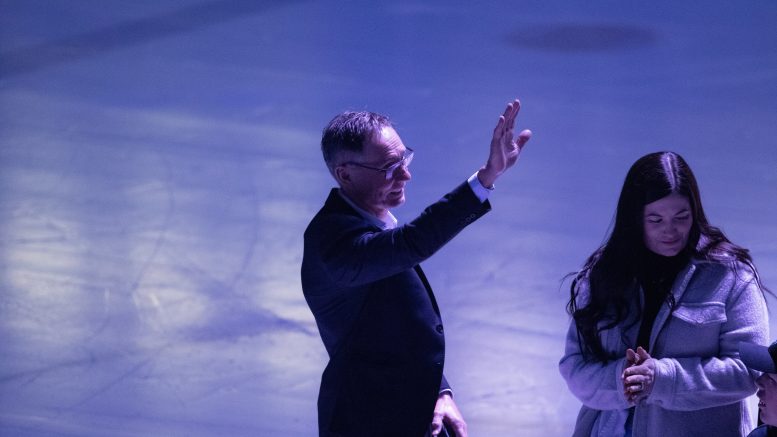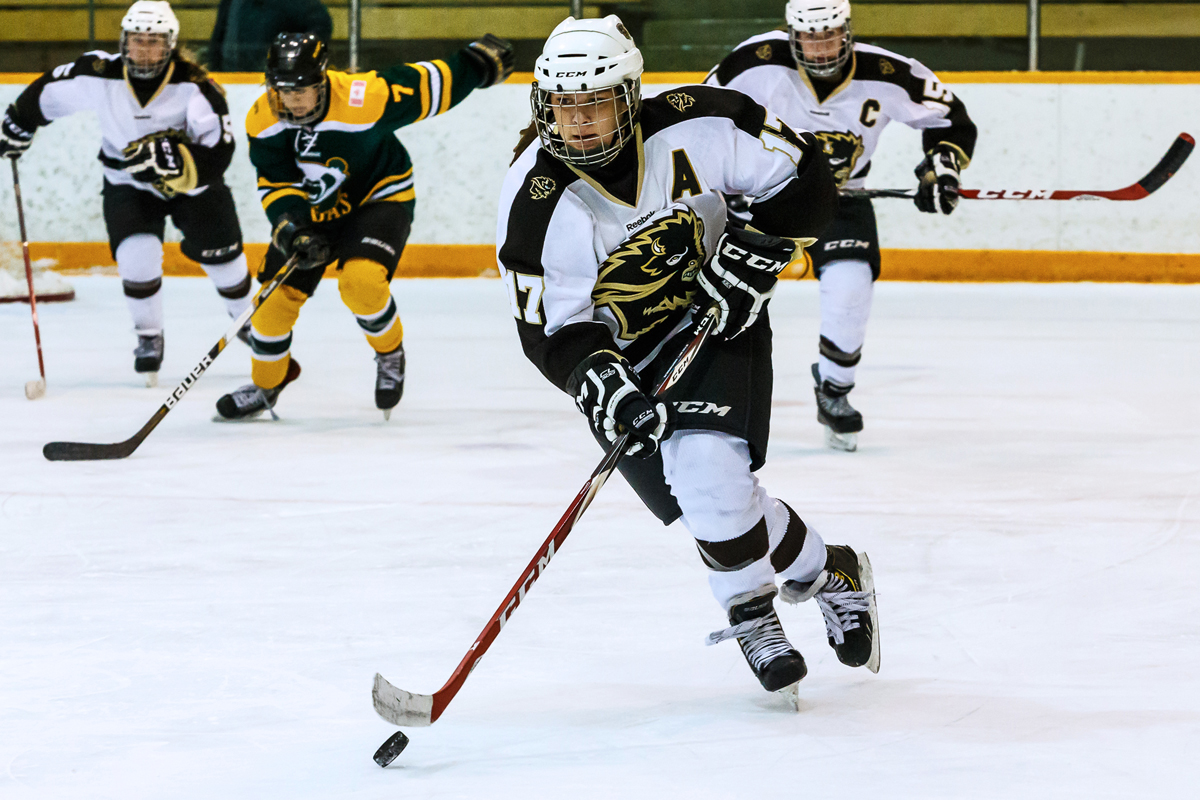The U of M men’s hockey team finished its season entrenched in eighth place in the Canada
West conference (CanWest) standings, two points shy of a playoff spot.
Additionally, head coach Mike Sirant’s coaching tenure ended when the team missed the
playoffs. Earlier this year, Sirant announced that he would be retiring sometime in June.
While the herd missed the playoffs, there were certainly highlights from the season.
The U of M’s best player during the 2022-23 season was forward Brett Davis. Davis had joined
the Bisons for the 2021-22 season after a cup of coffee with the Manitoba Moose.
For his efforts this past season, Davis was named a CanWest second team all-star. In 23
games, the second-year stud racked up a team-leading 29 points including 11 goals.
While Davis finished 14th in CanWest scoring, the Oakbank, Man. native produced 1.26 points
per game, which was eighth best in CanWest.
The team’s second leading scorer was Devon Skoleski, who also slotted home 11 goals and
finished the 2022-23 campaign with 27 points in 27 games.
Chase Hartje was the Bisons’ most prolific defenceman, chipping in with 20 points and 14
apples.
Jonny Hooker was the Bisons’ leading rookie point scorer, finishing with 10 points. Before
joining the Bisons this year, Hooker was the captain of the Western Hockey League’s Prince
George Cougars.
In net, second year Ross Hawryluk got the majority of starts, appearing in 22 games, posting
lacklustre stats. Hawryluk had a goals against average of 4.06 and a sub .900 savepercentage,
while notching seven wins.
Nevertheless, Hawryluk did face the second most shots against in the regular season, which
may incline some to forgive his less than stellar numbers.
In an interview with the Manitoban about the Bisons’ season, and his last, a pensive Sirant took
time to contemplate each question before answering with candor.
While conceding that “it was a tough season,” the Bisons’ absence from the playoffs “wasn’t
from a lack of effort from our players and coaching staff,” Sirant said.
“Every game, regardless of the score or what happened the previous night, our players
competed hard.”
Despite the team’s poor record, “our players stayed loyal to each other and really cared for one
another,” Sirant said.
“We competed and stayed in the fight, and that shows a lot of character and a lot of resiliency.”
“Even in games that we were losing, players were still out there blocking shots late in the game,
sacrificing,” he stated.
“When you don’t have the success that you’re striving for, you always look at the opportunity to
reflect and learn from it,” he explained.
“And that leads to your personal growth, because hockey, like life, it’s not always going to go the
way you hope or expect, but the key is what you’ll learn from that experience, that’s going to
make you better as a person.”
Looking on the bright side, Sirant drew attention to a few season highlights: playing against
division one NCAA competition — St. Cloud State and the University of North Dakota — and, of
course, the game against the Ukrainian U25 National Men’s Hockey Team, “games that we’ll
remember all our lives,” Sirant noted.
Concerning the aforementioned game against Ukraine, Sirant said, “it really was an amazing
evening.” He recalled how many people contacted the Bisons after the game, “saying that they’ll
never forget that night and how proud they were to be Winnipeggers and Manitobans.”
The game had an undeniably powerful impact. Sirant noted that its purpose was “to remind us
the people in Ukraine still need our support, in terms of humanitarian aid.” He added that the
game “really lifted the spirts of people both here in Canada and in Ukraine.”
Canada Life Centre was “packed with recent Ukrainian refugees and people in Ukraine were
following the game back in Ukraine and they were overwhelmed that people in […] Canada were
so supportive of their cause,” Sirant added.
Roughly 8,000 people attended the Jan. 9 game, the majority of which were Ukrainian refugees
for whom the U of M provided complementary tickets.
The game also raised funds for Ukrainians, while financing the promotion of hockey in the
country.
Looking back on his internationally dotted career, Sirant fixated on “the memories of so many
people that I’ve been blessed to work with that really enriched my life.”
Out of all his accomplishments, Sirant feels that helping the players he’s coached “be
successful in their careers and positive contributors to our community” is truly invaluable.
When asked what a piece of life advice he’d give to his younger self would be, Sirant said, “work
really hard, find something that you are passionate about, be humble, respectful and grateful,
always pursue learning and strive for continuous improvement, and be a servant leader, which
is having an awareness for opportunities to serve others.”
And a servant leader he was. The Bisons hockey program will surely miss him. The Manitoban
wishes him all the best in his retirement.





